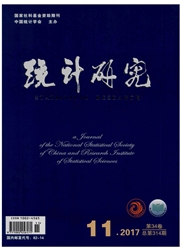

 中文摘要:
中文摘要:
财政分权作为一种划分中央和地方之间收支权责的制度安排,既有从财政收入角度的划分,也有从财政支出角度的划分,而不同角度下财政分权对地方政府科技投入的影响机制并不完全相同。本文在深入剖析财政分权对地方政府科技投入不同影响机制的基础上,基于省级面板数据,利用空间计量经济学方法,实证分析了财政分权对地方科技投入的影响。研究发现,收入角度下的财政分权显著地抑制了地方政府的科技投入,而支出角度下的财政分权却产生显著的正向作用。采用不同的空间权重矩阵,以及采用不同的财政分权的指标度量,结果都表明,本文结果具有良好的稳健性,本文结论可为我国深化财政体制改革、促进地方财政科技投入、落实创新驱动发展战略提供政策参考。
 英文摘要:
英文摘要:
As an institutional arrangement dividing the rights and responsibilities of revenue and expenditure from central government to local governments, fiscal decentralization must be established not only based on the point of fiscal revenue, but also on that of fiscal expenditure. It should be noted that the influences on local government' s technology investment based on different viewpoints are not be exactly the same. In this paper, by deeply analyzing these two viewpoints and their corresponding mechanisms on how fiscal decentralization influence local government's technology investment, we make empirical studies based on Chinese provincial panel data combining spatial econometric methods. The result shows that fiscal decentralization under fiscal revenue condition significantly inhibits the technology investment, while that under fiscal expenditure has significant positive effects. The result from this paper can be proved to be robust through using different spatial weights matrixes and fiscal decentralization metrics. This gives political references to deepening the financial reform, promoting the local governments ' technology investment, and implementing innovation-driven development strategy.
 同期刊论文项目
同期刊论文项目
 同项目期刊论文
同项目期刊论文
 期刊信息
期刊信息
